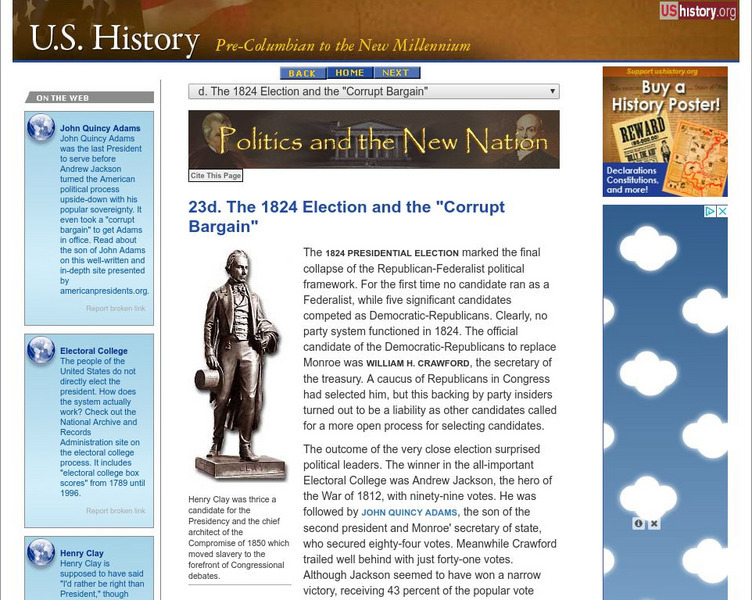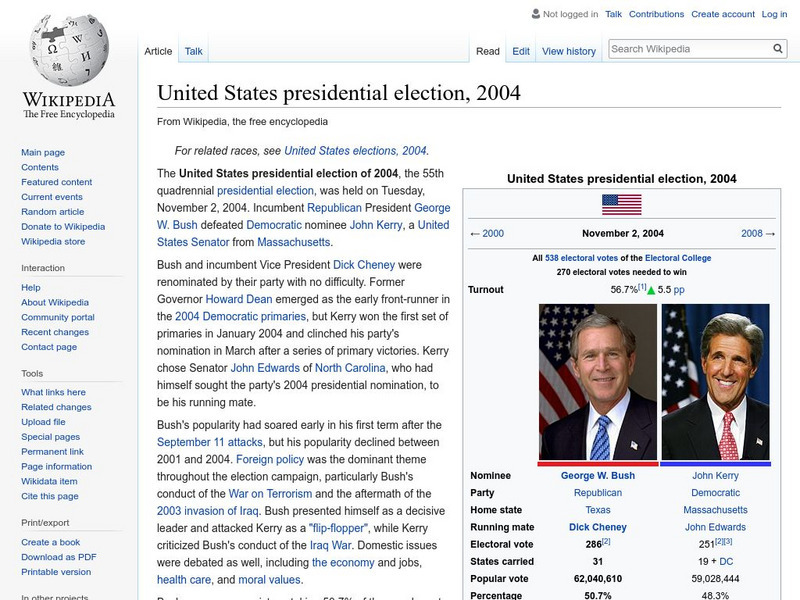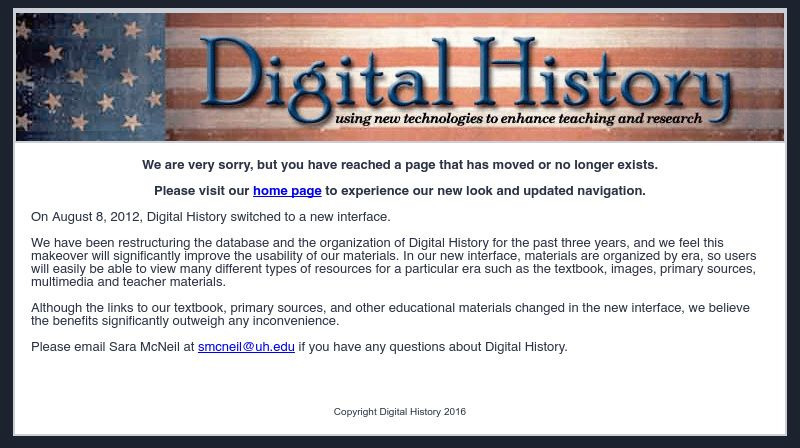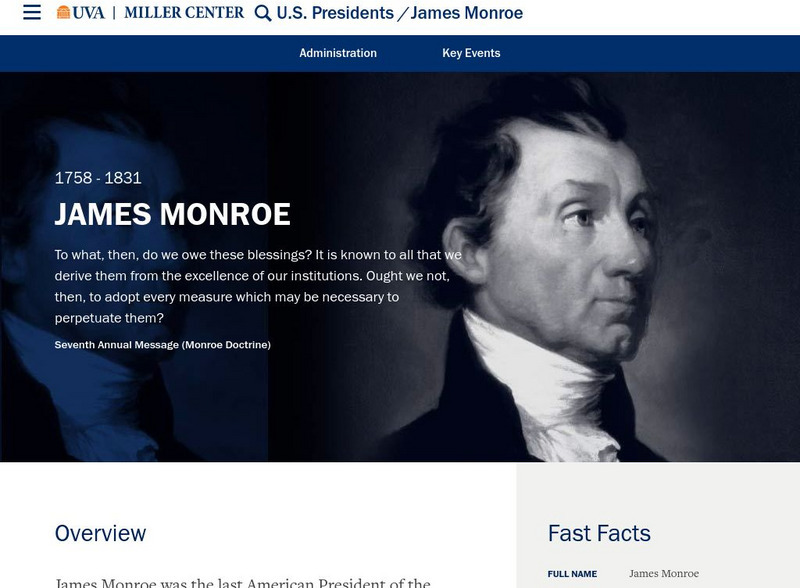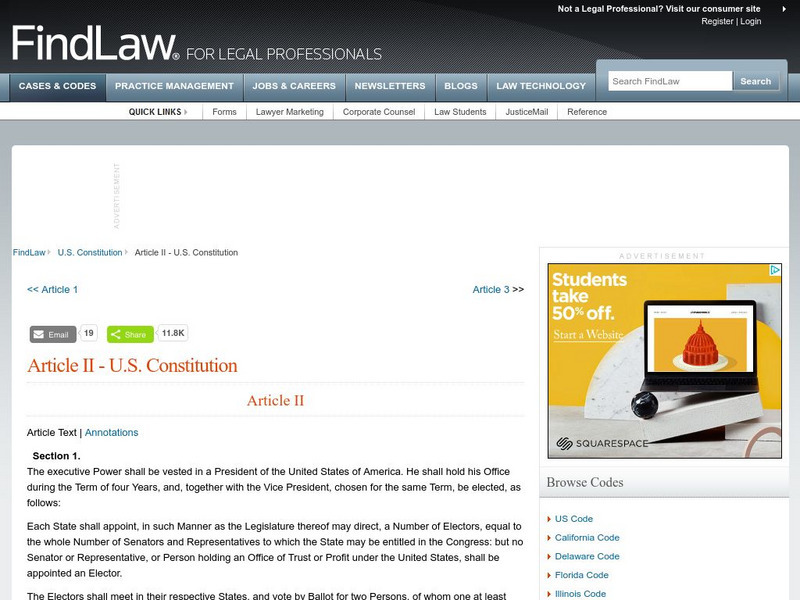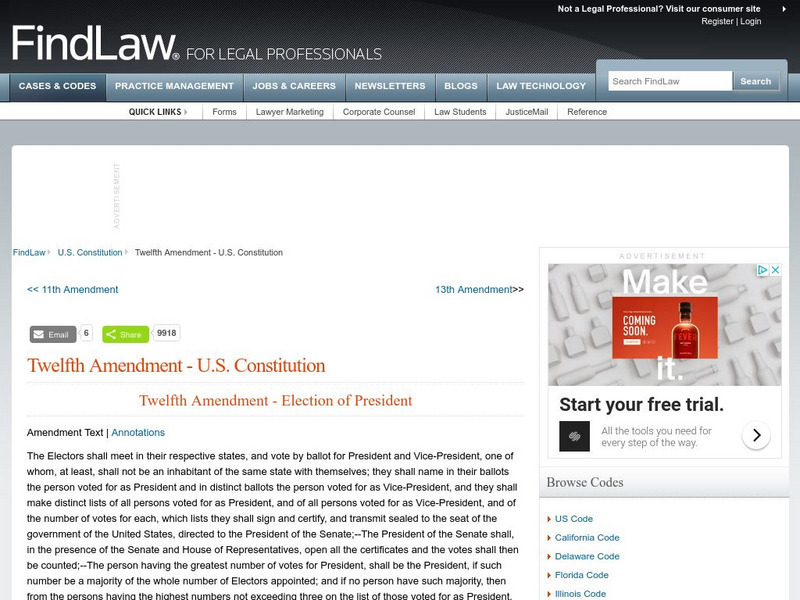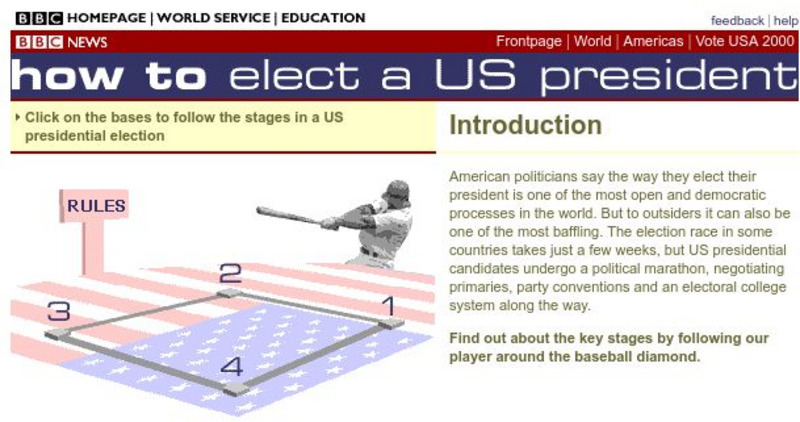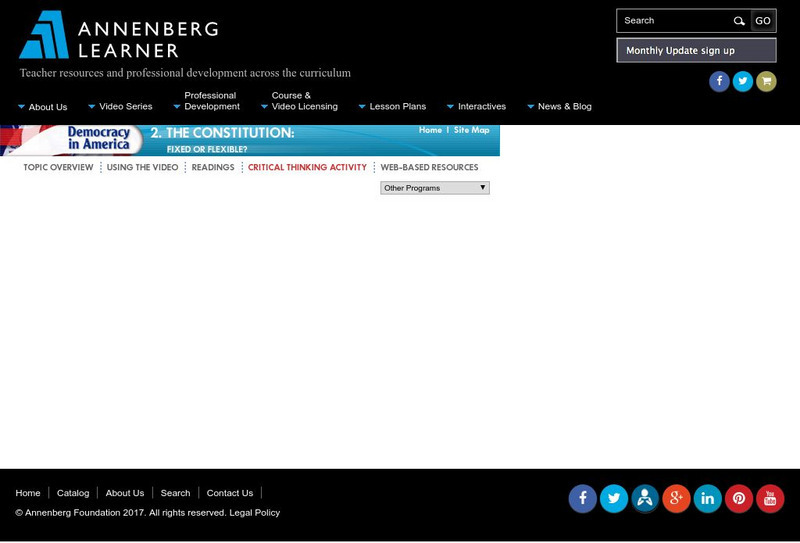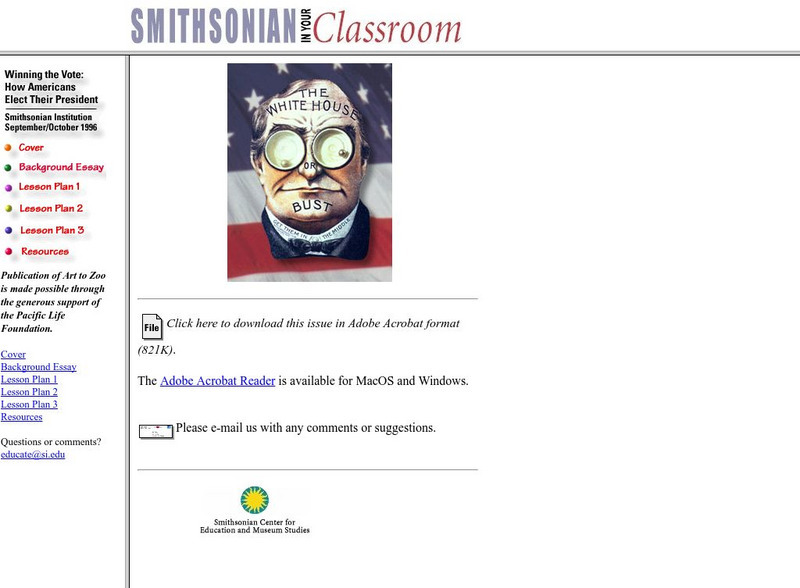Hi, what do you want to do?
Independence Hall Association
U.s. History: The 1824 Election and the "Corrupt Bargain"
The two-party system in presidential elections fell apart in the election of 1824. See what happened when five men, all from the Democratic-Republican Party, ran against each other. Find out why the choice of John Quincy Adams was called...
Other
Gov Spot: The Presidential Election Process
"In simplified terms" learn about how the President and Vice President are elected. An overview describing the step by step process of the electoral process.
Wikimedia
Wikipedia: United States Presidential Election, 2004
Wikipedia provides information on the 2004 presidential election. It gives a list of the presidential candidates by political party, a month-by-month timeline of events pertaining to the 2004 campaign, electoral college changes since the...
Digital History
Digital History: The Disputed Election of 2000
Online summary of the dispute over the presidential election of 2000 and the outcome.
US Government Publishing Office
Ben's Guide to u.s. Government: Election Process
Ben's Guide is a fun way to present U.S. Government to students grades K-12. This site presents a series of pages taking you through the election process, including Presidential, Senate and Representatives elections and voter...
US Government Publishing Office
Ben's Guide to u.s. Government: Election Process
Ben's Guide is a fun way to present U.S. Government to students grades K-12. This site presents a series of pages explaining the Presidential, senate and Representative election process. Links to related sites are available.
Independence Hall Association
U.s. History: Republican Philadelphia
Philadelphia today leans to the Democratic ticket in most elections. This website, ushistory.org, is completely nonpolitical, but it offers resources for right-leaning visitors to feel right at home when visiting.
Other
Usa.gov: Presidential Election Process
Follow the path to being elected President of the United States. Each step is highlighted and explained with examples if applicable. Also, contains a downloadable infographic that can be used in the classroom to explain this unique process.
University of Virginia
Miller Center at Uva: u.s. Presidents: James Monroe
This site gives a biography of President James Monroe. From the left-hand toolbar, select information about his life before presidency, campaigns and elections, and also domestic affairs. Links to the first lady, cabinet members , and...
University of Virginia
Miller Center at Uva: u.s. Presidents: Rutherford Hayes: Campaigns and Elections
Read this very thorough discussion of the nomination process for the candidates for both the Republican and Democratic Parties in the election of 1876. In addition, the explanation of the eventual outcome of the disputed election is very...
Thomson Reuters
Find Law: United States Constitution: Article Ii
Full text of Article II from the U.S. Constitution, as well as detailed annotations that explain the reasoning and subsequent impact of each clause and section of the Article. Content explores everything from the nature and scope of...
US National Archives
Nara: Presidential Election Laws: Presidential Election Laws
Check out this site from the National Archives and Records Administration on the US Constitution and the United States Code for laws and provisions regarding presidential elections.
iCivics
I Civics: Election Results Tracker
Election Results Tracker activity helps students monitor the election results with a map and Electoral College vote counter.
Curated OER
[Image: Caption Below]
This site from the Library of Congress provides a wide variety of historically significant materials on presidential elections and the electoral college.
iCivics
I Civics: Popular v. President
Can the candidate who wins the majority of the popular votes miss out on being president? They can, and it's happened before.
Thomson Reuters
Find Law: u.s. Constitution: Twelfth Amendment
This resource reviews the text of the Twelfth Amendment and related annotations.
BBC
Bbc News: How to Elect a Us President
Electing a US President can be a political marathon. The British Broadcasting Company helps make this process easier to understand by explaining it in key stages.
Shippensburg University
Shippensburg University: Weighted Voting Systems [Ppt]
This PowerPoint explains how a weighted voting system works and the notation and terminology used to discuss them.
Annenberg Foundation
Annenberg Classroom: Voting Rights
This website contains an interactive timeline about the history of voting rights in the United States.
University of Virginia
Miller Center at Uva: u.s. Presidents: Benjamin Harrison: Campaigns and Elections
Read about the subdued campaign and election of 1888 where the Republicans took control of the presidency, House of Represenatives, and Senate. Find out how Benjamin Harrison was selected as the Republican presidential candidate.
Annenberg Foundation
Annenberg Learner: Cause for Debate
The Constitution creates separate institutions that must share power, there will always be disputes over the basic principles. Check out some of the hot issues (term limits, electoral college, judicial review) that are in dispute even to...
Annenberg Foundation
Annenberg Classroom: Twelfth Amendment
Primary source text of the 12th Amendment accompanied by an explanation of the history and meaning. Links to resources for further study of this Constitutional Amendment.
Smithsonian Institution
Smithsonian Education: Winning the Vote
Three lesson plans that take students through three different steps in our election process.
270 To Win
270towin: 1872 Presidential Election
Provides detailed electoral facts for the presidential election of 1872 won by Ulysses S. Grant. Another candidate, Horace Greeley, died before the Electoral College cast its votes; it is so far the only election in which a Presidential...





